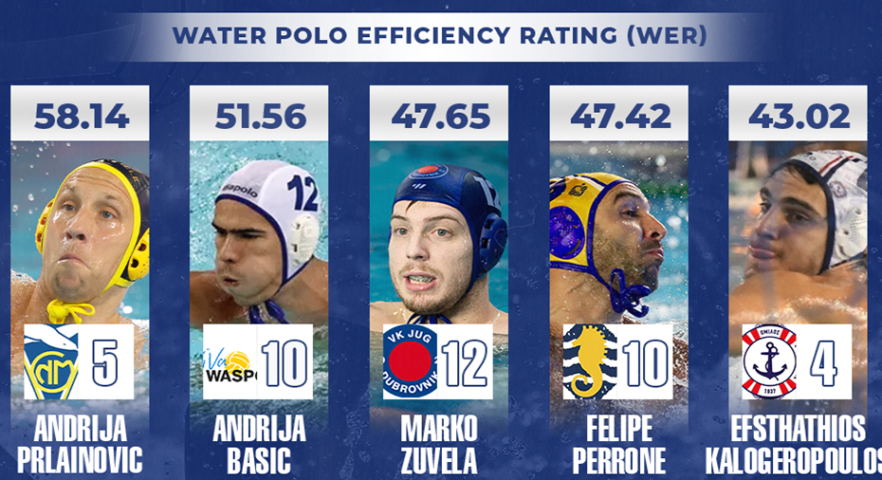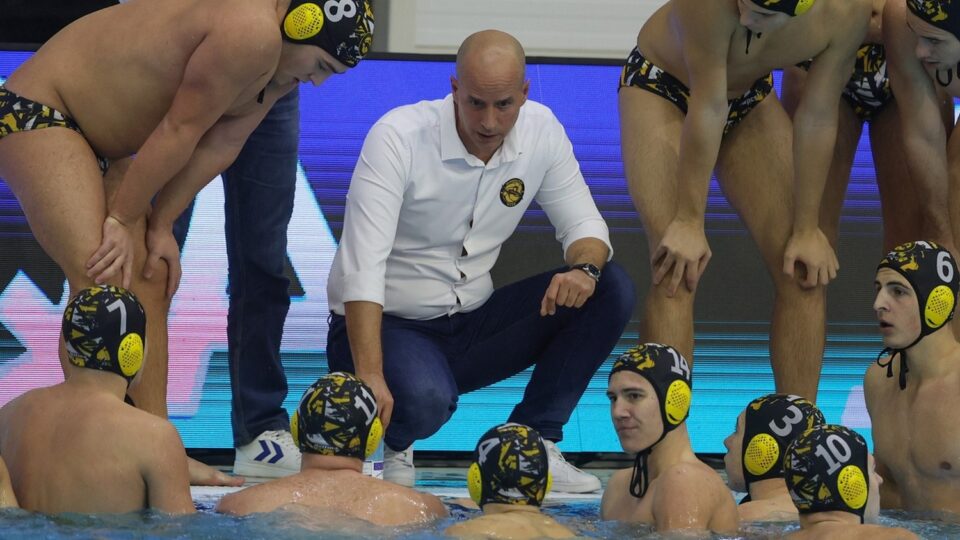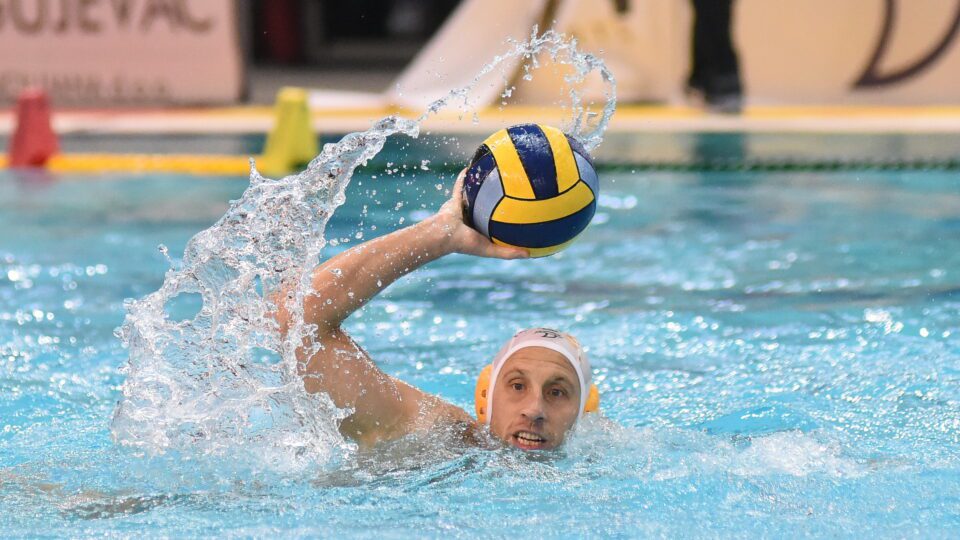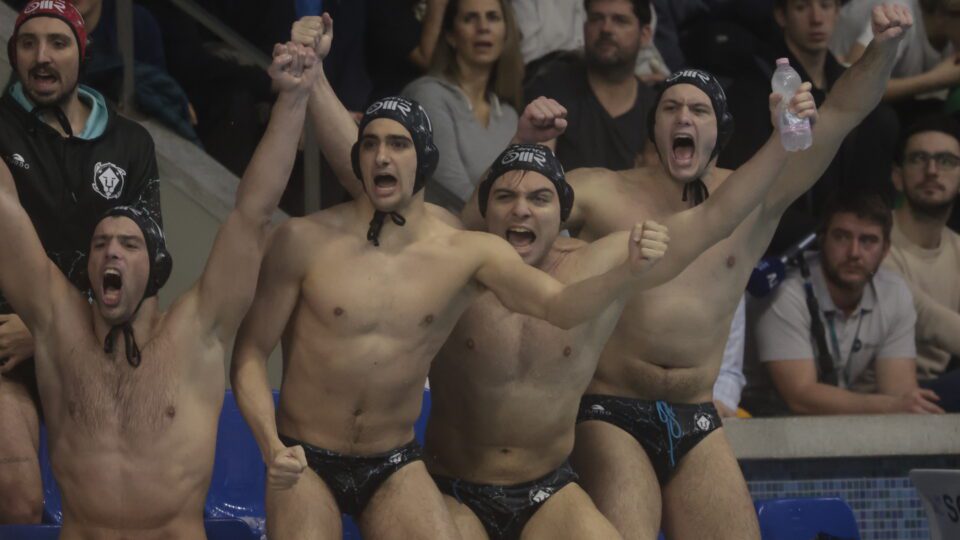Total Waterpolo is proud to present a new metric for measuring a water polo player’s performance: the Water Polo Efficiency Rating (WER). This innovative metric takes into account both offensive and defensive contributions of each player to give a comprehensive evaluation of their performance relative to the rest of their team.
After years of collecting data via our Total Arena Livescore software, we have developed a metric that is designed to determine which player has the biggest impact in-game for their respective team. Using our carefully calculated algorithm, we can now give a player a rating based on their contribution to their team.
Our WER metric is currently being applied for the 2022/2023 Champions League season, but the application of the metric can be used for many other tournaments.
How is WER calculated?
The WER algorithm considers the following factors:
- Attacking statistics
- Defensive statistics
- Mistakes in-game
- General team statistics
Why is WER important?
Traditionally, water polo players’ performance is judged based on simplistic statistics such as goals scored, or subjective factors such as player of the match awards. These measures do not take into account the player’s overall impact on a game, which may go beyond scoring goals. The WER is a more accurate and comprehensive measure of player performance, which can be used by coaches, scouts, and fans alike to evaluate a player’s impact on a game.
Conclusion
The Water Polo Efficiency Rating is an innovative metric that provides a comprehensive evaluation of a player’s performance. It takes into account both offensive and defensive contributions and is an objective way to compare players across different positions, teams, and leagues. As the WER gains more recognition in the water polo community, it has the potential to revolutionise the way we measure and evaluate player performance.
WER Rankings – Champions League (after seven games)
In the middle of the Main Stage, Andrija Prlainovic is atop the WER Rankings list. The double Olympic champion proves that he is a universal player. In the early stage of his career, he was an outstanding goal-getter in the first place, but from year to year, he developed and became an excellent player both in defense and attack.
Hannover did a great job in the transfer market last year by bringing Andrija Basic. He became one of the leaders of the German club in a short time. The statistics show his capabilities. Basic plays perhaps the best season in his career so far.
The youngest among the top three is Marko Zuvela. Last summer, Marko Zuvela was one of the key players of the Croatian national team that won European gold. He kept summer momentum and was the man of the match in many Jug’s games on the European and the domestic stage.
Felipe Perrone, the brain of Barceloneta and Spain, is always there when it’s needed. He scored many goals in crucial moments and does a great job in defense. But we don’t need to write a lot about Perrone. His capabilities are well-known to all water polo lovers.
A 22-year-old Efstathios Kalogeropoulos is a player of the future, as well as Zuvela. If he continues as he started, he will be one of the pillars of the Greek national team.
- Andrija Prlainovic (Marseille) – 58.14
- Andrija Basic (Waspo98) – 51.56
- Marko Zuvela (Jug Adriatic) – 47.65
- Felipe Perrone (Barceloneta) – 47.42
- Efstathios Kalogeropoulos (Vouliagmeni) – 43.02
- Bernat Sanahuja (Sabadell) – 40.25
- Marko Radulovic (Radnicki) – 39.48
- Stefan Pjesivac (Dinamo Tbilisi) – 39.15
- Edoardo Di Somma (Brescia) – 39.07
- Dimitri Kholod (Spandau) – 39.00
- Charalampos Troulos (Vouliagmeni) – 37.91
- Gergo Zalanki (Pro Recco) – 36.67
- Loren Fatovic (Jug Adriatic) – 36.20
- Marton Vamos (Olympiacos) – 36.14
- Alvaro Granados (Novi Beograd) – 35.57
- Ioannis Fountoulis (Olympiacos) – 35.33
- Ugo Crousillat (Marseille) – 34.94
- Sergi Cabanas (Sabadell) – 34.57
- Jerko Marinic-Kragic (Jadran Split) – 33.62
- Stylianos Argyropoulos (FTC Telekom) – 33.06






